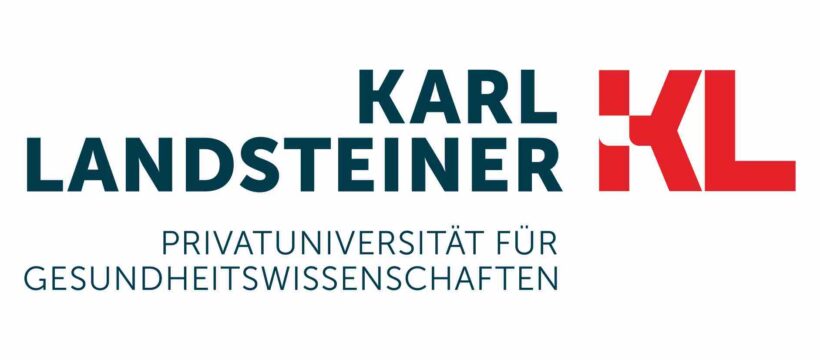Karl Landsteiner University of Health Sciences proves importance of direct personal communication in presence for mental health. Digital communication less important during pandemic
Krems, 13. July 2023 – During COVID-19-related lockdowns, face-to-face communication was of much greater importance for mental health than digital communication alternatives. This is the result of a study conducted by the Karl Landsteiner University of Health Sciences in Krems, Austria (KL Krems). Among the digital alternatives, in turn, text communication (mail, SMS, WhatsApp) surprisingly had stronger positive effects on mental well-being than the popular video conferencing. The results of the study were recently published in Scientific Reports, a journal of the Nature portfolio.
During the COVID-related lockdowns, appeals were made worldwide to maintain social contacts – while keeping a physical distance (social distancing). Many individuals, companies, and organizations such as schools heeded these appeals and dramatically increased their use of digital communications. However, the extent to which these alternatives can replace face-to-face communication when it comes to psychological well-being has remained unclear. Now, an internationally acclaimed study from KL Krems has published interesting data to clarify this question.
Recipe for Mental Health
„The results of our comprehensive study are unequivocal,“ explains Dr. Willinger, a researcher in the Division of Psychological Methodology at KL Krems: „Face-to-face interpersonal contact was highly beneficial to mental well-being during the lockdown.“ In fact, the results show that mental health was significantly influenced by the extent of face-to-face communication in presence. This influence was so strong that the importance of this communication type could even be demonstrated for individual days with above-average personal contact. Says Dr. Willinger: „The study participants simply fared better psychologically on those days when they had more face-to-face conversations.“
Data collection during the pandemic provided ongoing information on contact activities and mental well-being for over 400 individuals from several countries. In addition, the extent and nature of other activities (e.g., sports) as well as gender, age, nationality, or relationship status were collected. In this way, nearly 10,000 data sets were collected, which were then analyzed using complex statistical evaluations.
The study found personal face-to-face contacts to be clearly the most important factor in mental well-being. Even physical activities or time spent outdoors could not match their importance. Additionally with digital text communication or video chats, these positive effects on mental health were significantly less pronounced than with face-to-face communication.
„Write again…“
However, the research team experienced another surprise as it compared the importance of the different digital communication channels. Intuitively, they had assumed that video conferences enriched with facial expressions, gestures and eye contact were „better for the mood“ than typing on keyboards to send text messages. But it turned out to be just the opposite. Says Dr. Willinger: „Using a special statistical model, we were able to show that mails, SMS or WhatsApp were better for the mental well-being of the study participants than video chats and conferences.“
In fact, this unexpected result fits in with brand-new comparable studies and individual case reports. For example, experts are currently discussing so-called „zoom fatigue“, i.e. exhaustion caused by video conferencing. Possible causes are suspected to be tension about one’s own appearance during the transmission, unusually long eye contacts, oversized facial images thanks to large monitors, camera positions that create an intimidating viewing angle from above, or cognitive problems caused by technical delays in sound-image synchrony.
For the team, the question at the end of the current study is whether future advanced Internet technologies will manage to implement digital communication in such a way that they can replace the now confirmed positive effects of personal communication in presence. Because, according to their study, until now, face-to-face interaction still supports mental well-being the most.
Original publication: Face‐to‐face more important than digital communication for mental health during the pandemic. S. Stieger, D. Lewetz & D. Willinger. Scientific Reports (2023) 13:8022 | https://doi.org/10.1038/s41598-023-34957-4
About Karl Landsteiner University of Health Sciences (2023)
At Karl Landsteiner University of Health Sciences (KL) in Krems, the comprehensive approach to health and disease is a fundamental objective for research and teaching. With its Europe-wide recognized bachelor-master system, KL is a flexible educational institution that is tailored to the needs of students, the requirements of the labor market as well as the scientific challenges. Currently KL hosts about 600 students in the fields of medicine and psychology. The three university hospitals in Krems, St. Poelten and Tulln ensure clinical teaching and research at the highest quality level. In research, KL focuses on interdisciplinary fields with high relevance to health policy – including medical technology, molecular oncology, mental health and neuroscience, as well as water quality and related health aspects. KL was founded in 2013 and accredited by the Austrian Agency for Quality Assurance and Accreditation (AQ Austria). www.kl.ac.at/en
| Scientific Contact Dr. David Willinger Department Psychology and Psychodynamics Karl Landsteiner Privatuniversität für Gesundheitswissenschaften Dr.-Karl-Dorrek-Straße 30 3500 Krems / Austria M +43 664 61 94 674 |
| Karl Landsteiner University of Health Sciences Eva-Maria Gruber Communications, PR & Marketing Dr.-Karl-Dorrek-Straße 30 3500 Krems / Austria T +43 2732 72090 231 M +43 664 5056211 |
| Copy Editing & Distribution PR&D – Public Relations for Research & Education Dr. Barbara Bauder Kollersteig 68 3400 Klosterneuburg / Austria M +43 664 1576 350 E bauder@prd.at |

